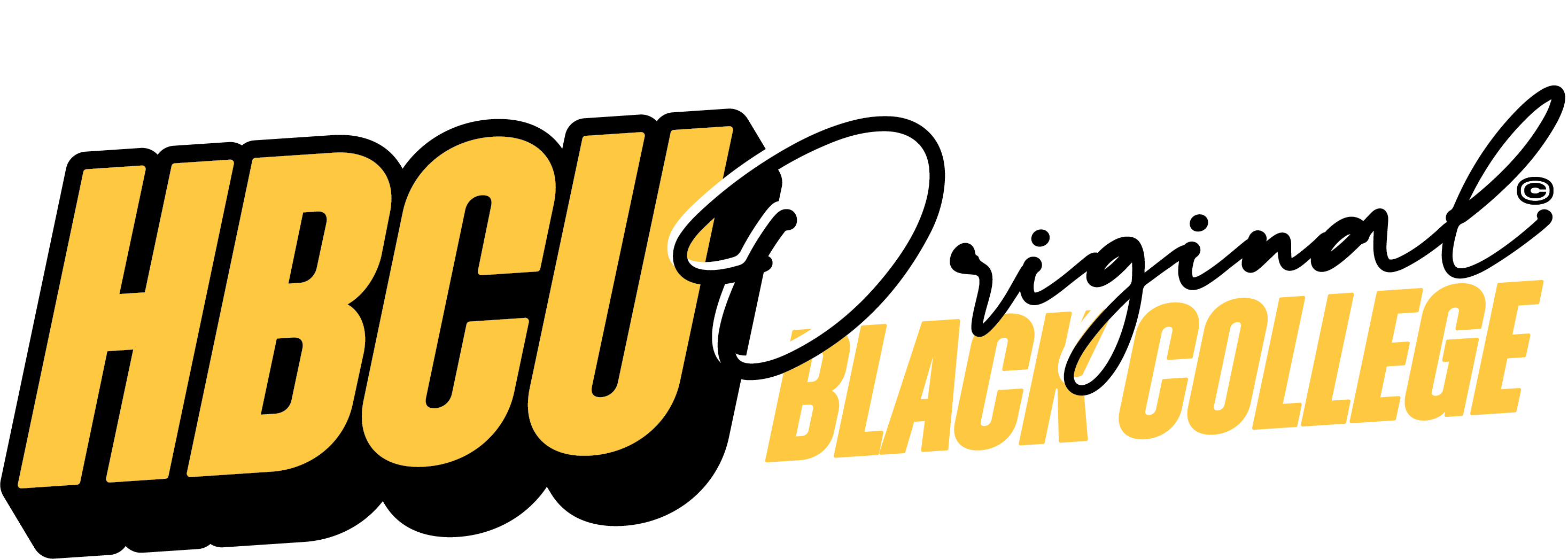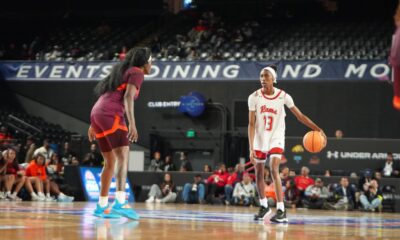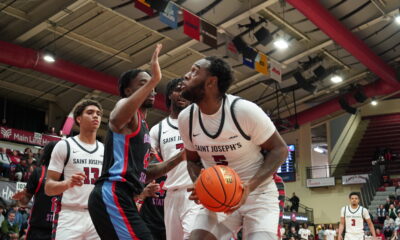HBCU ORIGINAL
Florida A&M’s Kirk Dawkins Set to Compete at NCAA Division I Outdoor Championships

June 10, 2025 | Eugene, Oregon
Florida A&M’s standout middle-distance runner, Kirk Dawkins, is headed to the big stage as he prepares to compete in the 800-meter semifinals at the NCAA Division I Outdoor Track and Field Championships this Wednesday. The race will take place at 8:58 p.m. EST at the legendary Hayward Field, located on the campus of the University of Oregon.
Catch the action live on ESPN.
Dawkins earned his spot at nationals by running a personal-best time of 1:46.62 at the NCAA East Regional quarterfinals—an impressive mark that solidifies his status among the elite in collegiate track.
This season has been a breakout year for the FAMU junior. He claimed the SWAC Outdoor Championship title in the 800 meters with a time of 1:50.2 and followed that up with a strong 1:48.01 showing at the East Coast Relays. His steady improvement and commitment to excellence are paying off as he heads into the national spotlight.
All eyes will be on Dawkins Wednesday night as he looks to continue his historic season and represent Florida A&M on the national stage.
HBCU ORIGINAL
SUNO Wins First Conference Title Since 2012
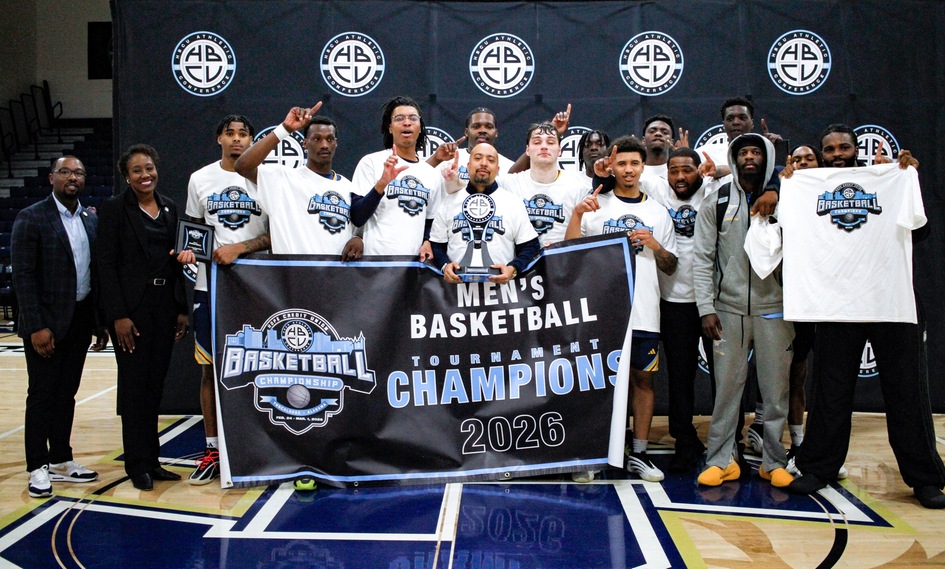
March 1, 2026 – Tuscaloosa, AL – In a thrilling HBCUAC championship showdown, Southern University at New Orleans (SUNO) defeated top-seeded Tougaloo University 84-81 in overtime, capturing its first conference title since 2012. The Knights overcame an early 0-7 deficit and multiple double-digit holes in regulation, forcing overtime at 72-72 before taking control in the extra period. In a full-circle moment, SUNO defeated the same opponent they beat 14 years ago to win the championship.
Standout Performances
Dorian Booker dominated inside, scoring 26 points with 14 rebounds and clutch free throws that anchored SUNO’s effort. Donte Briggs contributed 16 points, including perfect 4-of-4 free throws in overtime, while Jaylon Hicks added 12 points and critical defense, including a pivotal three-pointer in OT. Caleb Williams provided steady leadership with 10 points and key late-game free throws, and Jermaine Lawrence anchored the interior defense, limiting Tougaloo’s second-chance opportunities.
Championship-Clutch Moments
Trailing 70-72 in the final seconds of regulation, SUNO tied the game at 72 with clutch free throws from Briggs. Tougaloo’s final shot missed, sending the game to overtime. Hicks’ three-pointer gave SUNO a 75-72 lead, and Williams’ free throw with 0:04 remaining sealed the 84-81 victory.
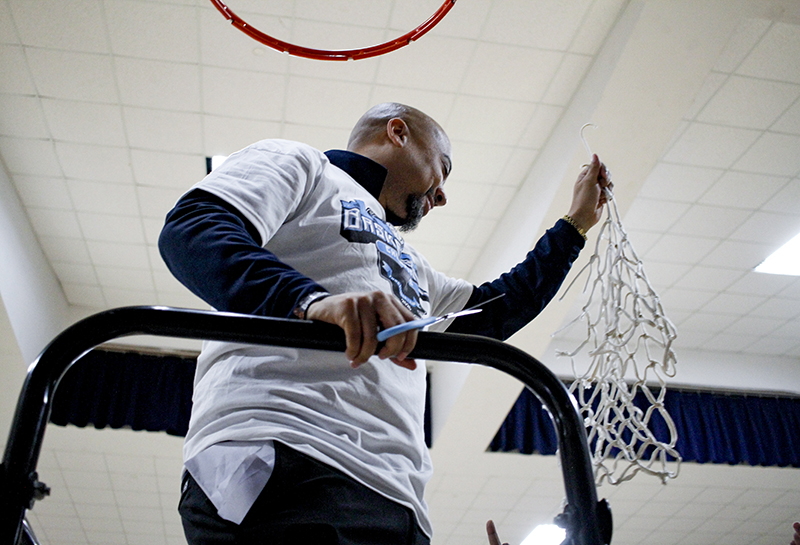
3/1/26 HBCUAC Men’s Basketball Championship Tournament SUNO vs Tougaloo (Final)
Photo by Trent Spruell
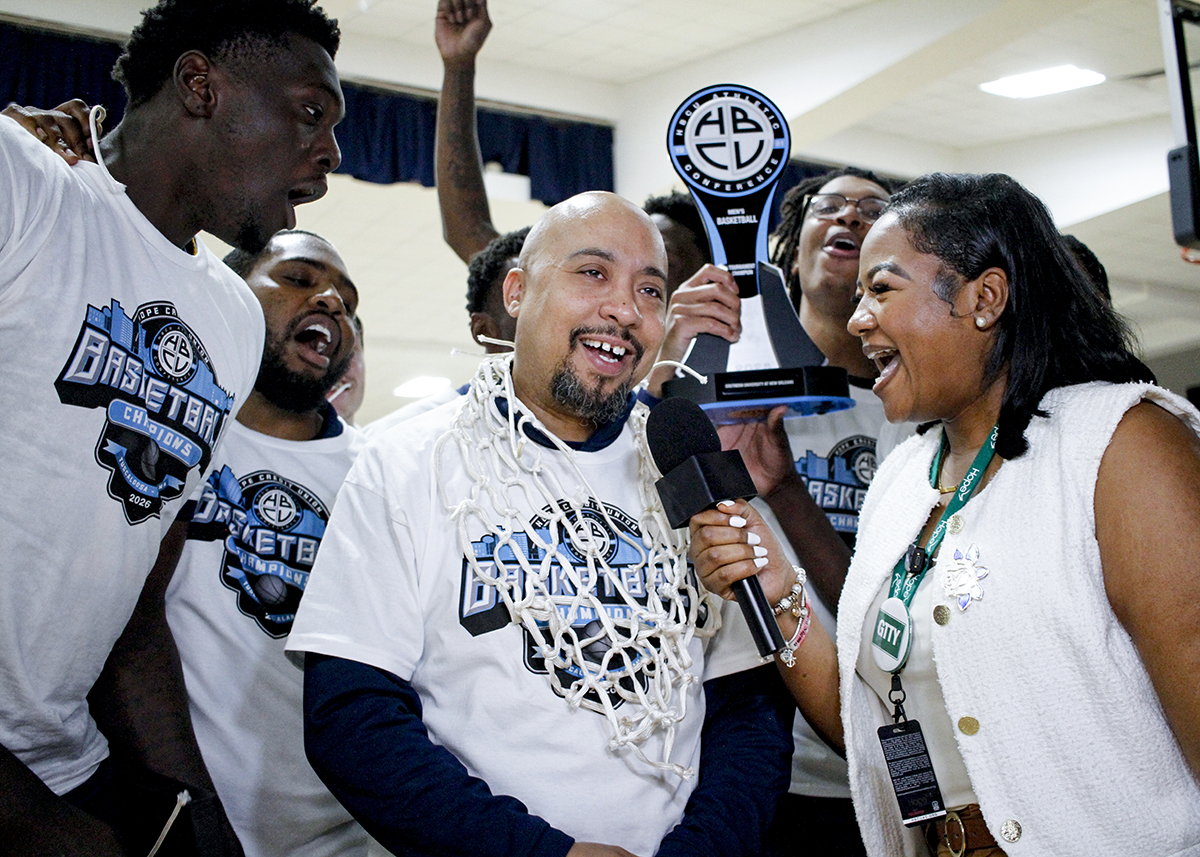
3/1/26 HBCUAC Men’s Basketball Championship Tournament SUNO vs Tougaloo (Final)
Photo by Trent Spruell
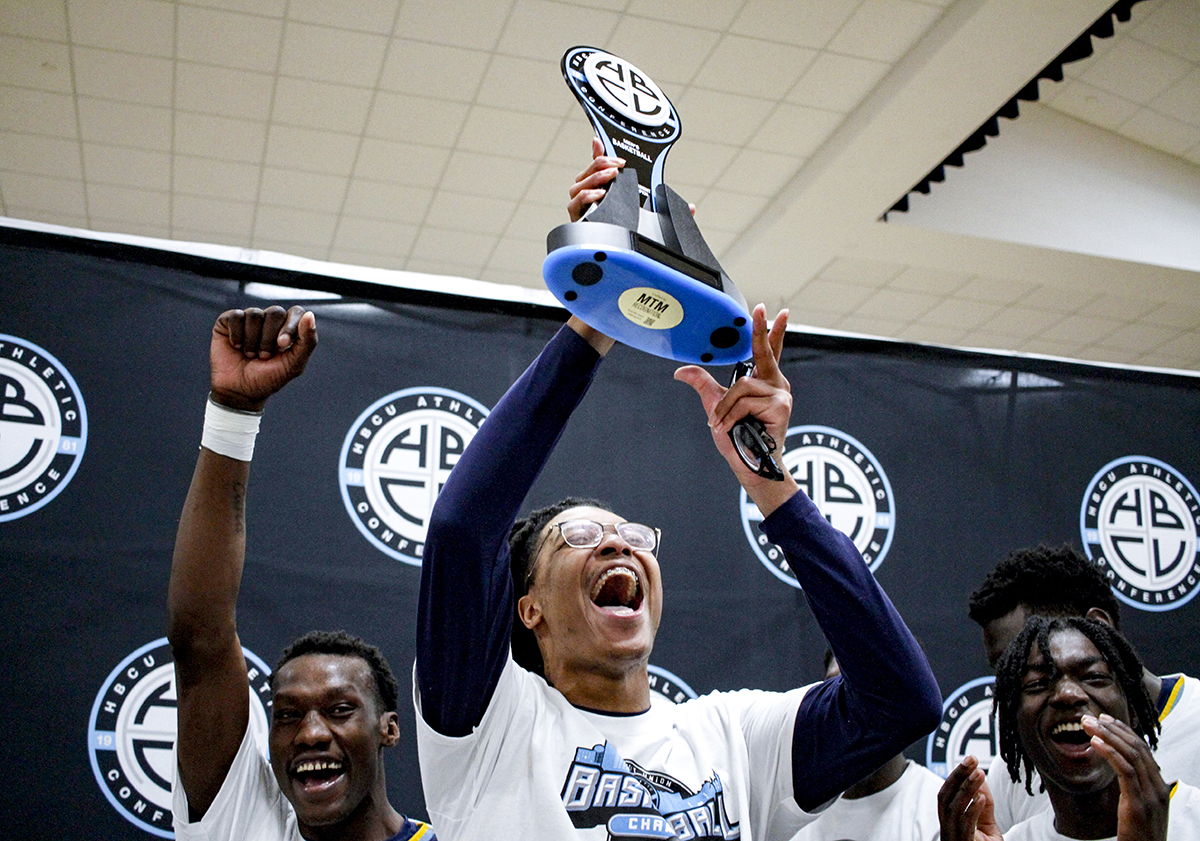
3/1/26 HBCUAC Men’s Basketball Championship Tournament SUNO vs Tougaloo (Final)
Photo by Trent Spruell
Coach James A. Matthews, III: A Journey Realized
This championship is especially meaningful for Head Coach James A. Matthews, III, who joined SUNO in 2014 as a volunteer, sweeping floors and washing uniforms. Now, as Director of Athletics and Head Coach, Matthews has guided the Knights from a two-win relaunch season in 2022-23 to HBCUAC champions with a 17-13 record. “This title proves the power of second chances,” Matthews said. “These young men believed when no one else did.”
All-Tournament Honors
-
Donte Briggs – Tournament MVP
-
Dorian Booker – All-Tournament Team
-
Jaylon Hicks – All-Tournament Team
The SUNO Knights now await their opening-round matchup in the 2026 NAIA Championship, carrying the faith, grit, and momentum that fueled their historic HBCUAC victory.
Credit: sunoathletics.com
Follow SUNO Athletics:
-
FB/IG/X: @sunoathletics
-
MBB IG: @sunoknightsmbb
HBCU ORIGINAL
Fayetteville State Rallies Late to Capture 2026 CIAA Men’s Basketball Championship
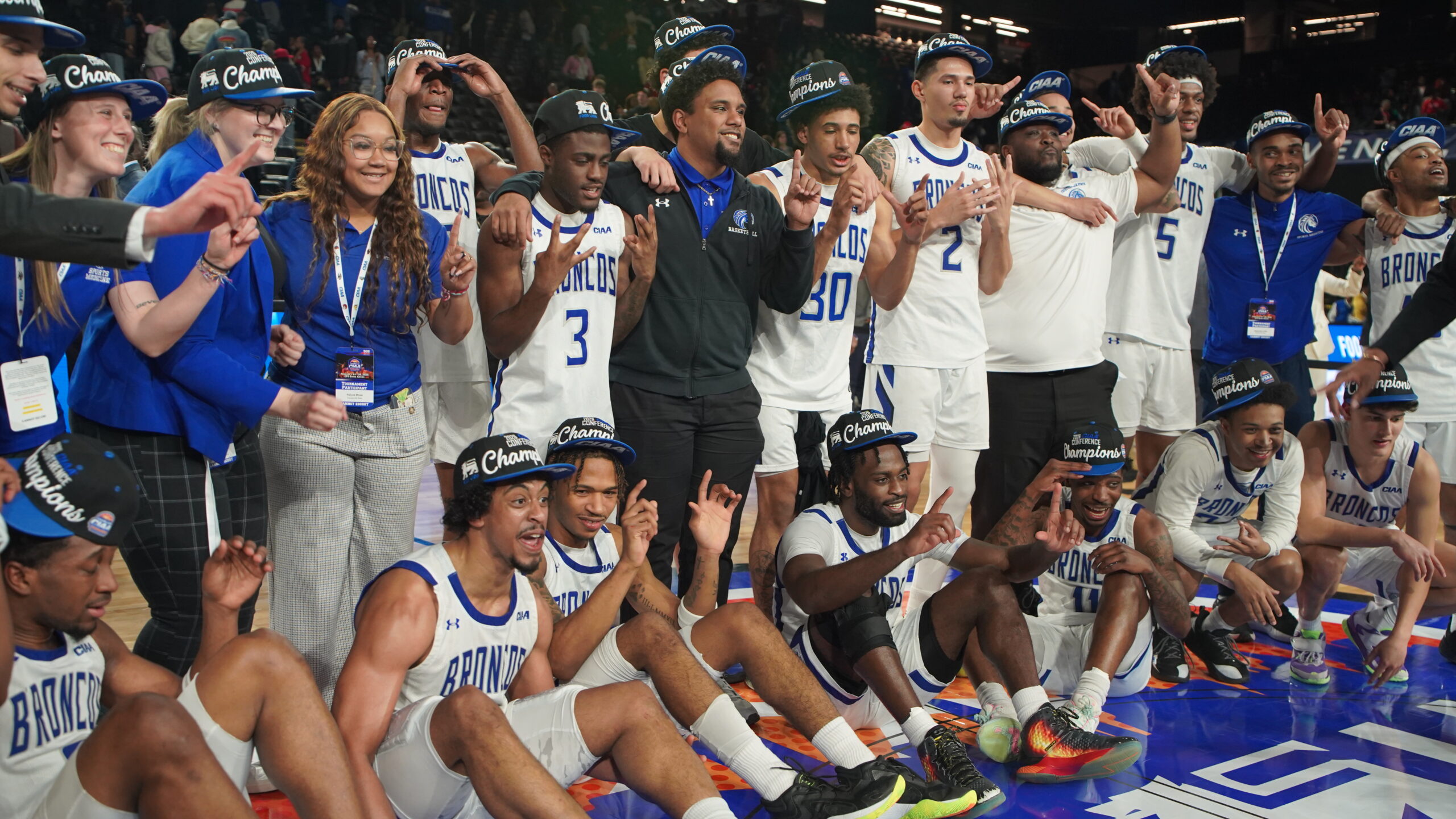
BALTIMORE, Md. — Championship games often come down to one thing: who delivers when the pressure peaks. On Saturday inside CFG Bank Arena, Fayetteville State found its closer — and rode him all the way to a title.
Behind a spectacular second-half performance from Terrell Williams, Fayetteville State erased an eight-point halftime deficit to defeat Bluefield State 71–68, capturing the 2026 CIAA Men’s Basketball Championship and securing an automatic berth into the NCAA Atlantic Regional Tournament.
Williams was unstoppable when it mattered most, finishing with 29 points while earning both Food Lion Player of the Game honors and CIAA Tournament MVP recognition. His shot-making, composure, and leadership fueled a comeback that transformed early frustration into championship celebration.
For Fayetteville State (23–6), the victory marked a return to conference supremacy — built on defensive pressure, resilience, and timely execution.
Bluefield State Strikes First
Bluefield State entered the championship loose and confident, playing with the energy of a team embracing the moment. Ellija Preddy led the early charge, scoring from all three levels on his way to a 20-point performance, while Anthony Latty dominated the interior with powerful finishes and second-chance baskets.
The Big Blue surged to a 28–14 advantage, controlling tempo and forcing Fayetteville State into uncomfortable offensive possessions. Even as the Broncos struggled to find rhythm, Williams kept them within striking distance, knocking down two critical three-pointers.
Additional contributions from Darius Boben, Larry Howell, and Travon Cooper helped steady the Broncos, but Bluefield State carried a 40–32 lead into halftime, appearing firmly in control.
The Turning Point
Championship teams respond — and Fayetteville State’s response came immediately after the break.
Williams opened the second half attacking downhill, scoring on a layup before drilling a deep three that reignited the Broncos’ sideline and cut the deficit to a single possession. Though Bluefield State briefly rebuilt its lead behind Latty’s interior presence, momentum was beginning to shift.
Boben ignited the rally with consecutive fastbreak layups sparked by defensive pressure, including a steal from Romeo Aquino that energized the crowd. Moments later, Ezekiel Cannedy buried a momentum-changing three, trimming the gap and forcing Bluefield State onto its heels.
Turnovers began to mount for the Big Blue as Fayetteville State’s defense tightened. Williams calmly sank free throws to pull within one, and Aquino tied the game at the line, completing the comeback.
Then came the defining moment.
Williams attacked the lane for a go-ahead layup — Fayetteville State’s first lead since the opening minutes — flipping the energy inside CFG Bank Arena entirely.
Closing Time
Bluefield State refused to fade quietly. Preddy connected on a contested three with 32 seconds remaining to cut the deficit to two, setting up a tense finish.
But Fayetteville State executed like champions.
Howell delivered the shot of the night earlier in the stretch, drilling a deep left-wing three to give the Broncos control before finishing a transition basket moments later off a Boben steal. Aquino added a clutch free throw in the closing seconds, and Howell secured the final rebound before sealing the victory at the line.
A last-second heave from Bluefield State fell short as the horn sounded, sending Fayetteville State players sprinting onto the court while blue confetti rained down from above.
Championship Identity
The Broncos flipped the game with a dominant 39–28 second half fueled by defense and efficiency. Fayetteville State shot 43.8 percent from three-point range and converted 16 steals into 25 points off turnovers — the difference in a game defined by momentum swings.
Alongside Williams’ 29 points, Howell and Boben each added 14, while Aquino and Cannedy delivered pivotal plays that shifted the contest during its most critical stretch.
Bluefield State’s effort matched the championship stage. Preddy finished with 20 points, Latty recorded 18 points and 10 rebounds, and Myles Pierre added 13 as the Big Blue controlled long stretches offensively. Ultimately, Fayetteville State’s depth and late-game execution proved decisive.
What Comes Next
With the CIAA crown secured, Fayetteville State now turns its focus to the national stage. The Broncos earned an automatic bid to the NCAA Atlantic Regional Tournament and will learn their postseason fate during the NCAA Selection Show on Sunday, March 8, on NCAA.com.
For now, though, the moment belongs to Fayetteville State — a comeback forged through pressure, resilience, and a star performance that will live in CIAA championship history.
The Broncos are champions once again.
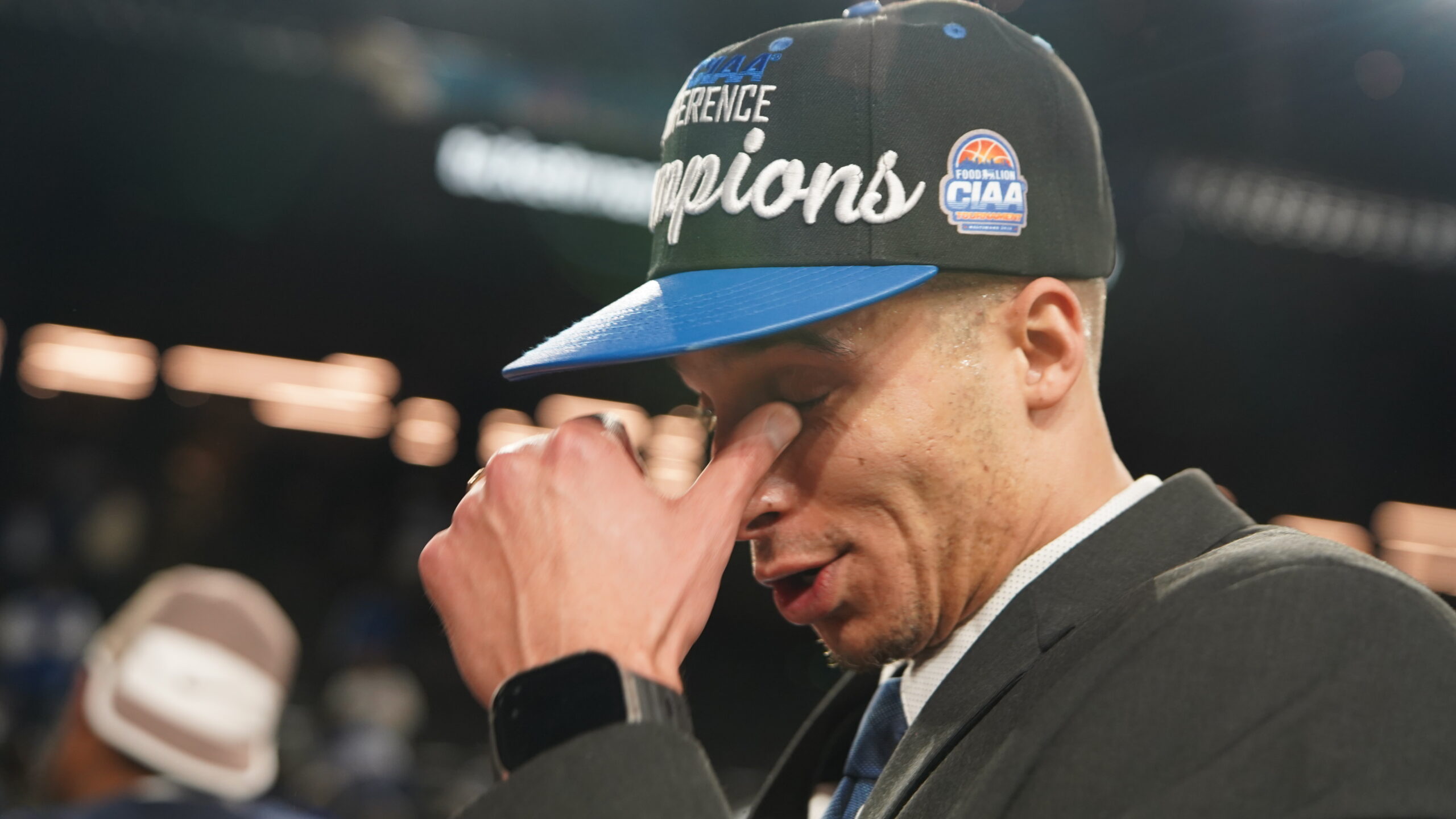
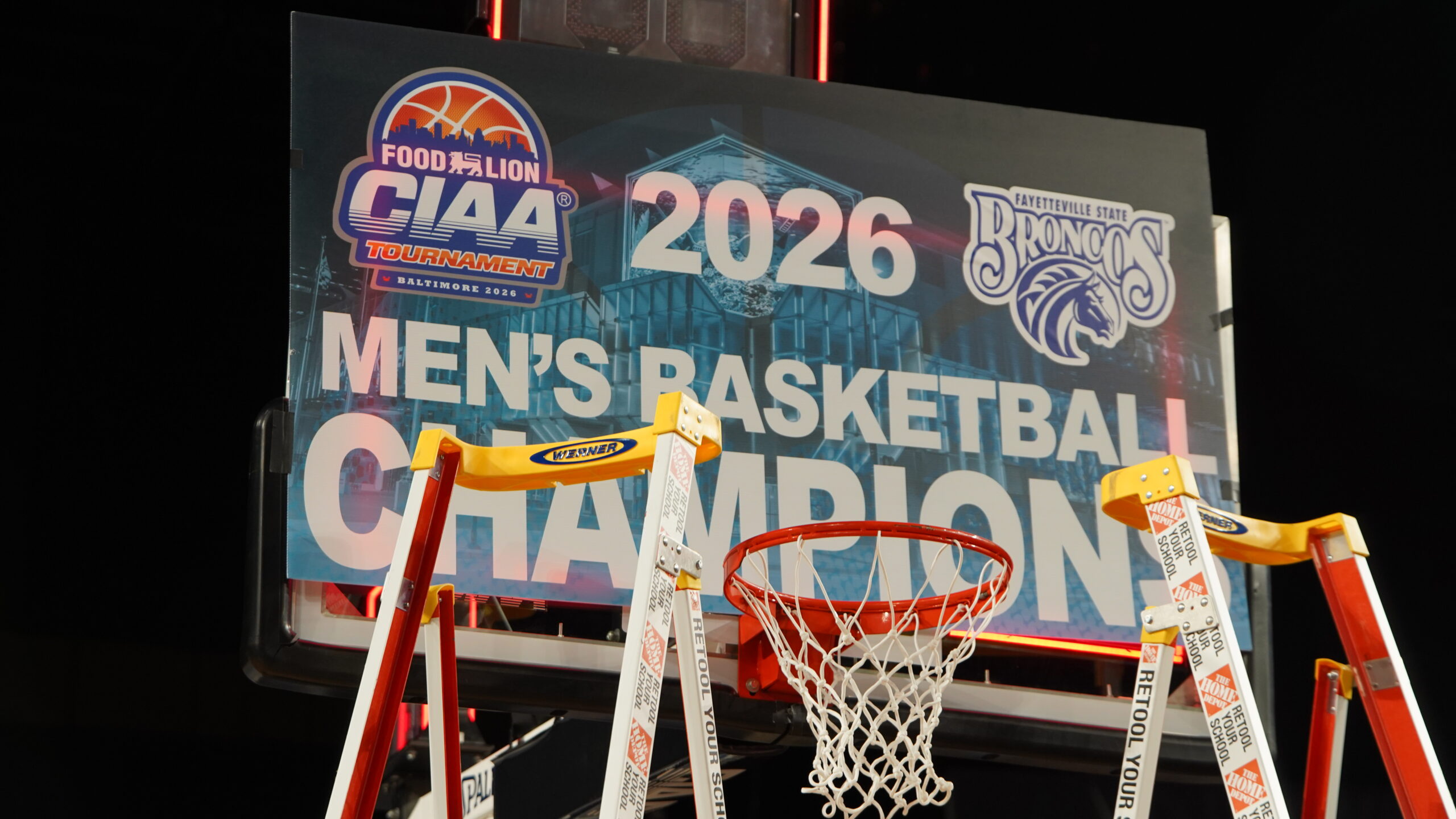
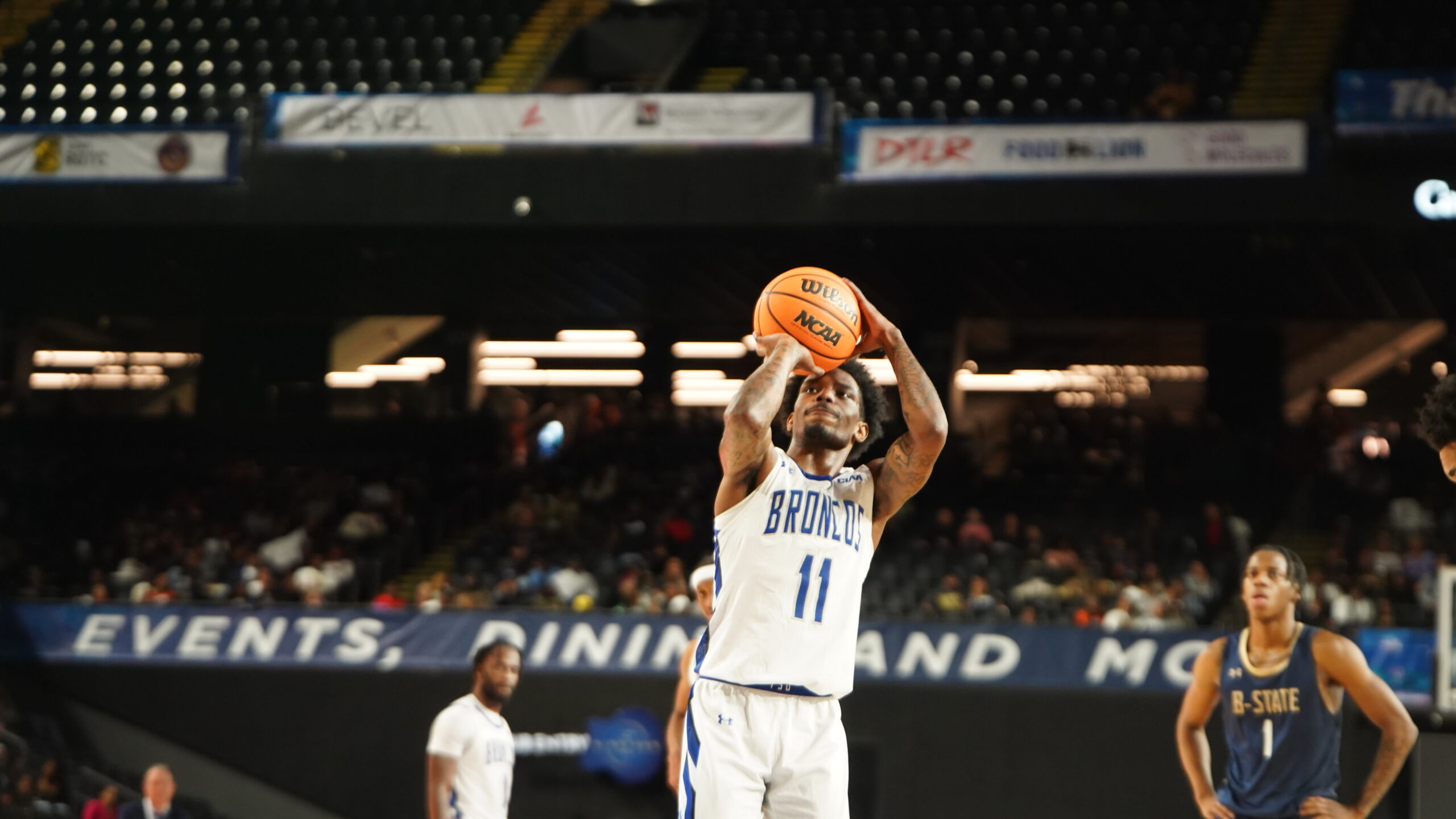
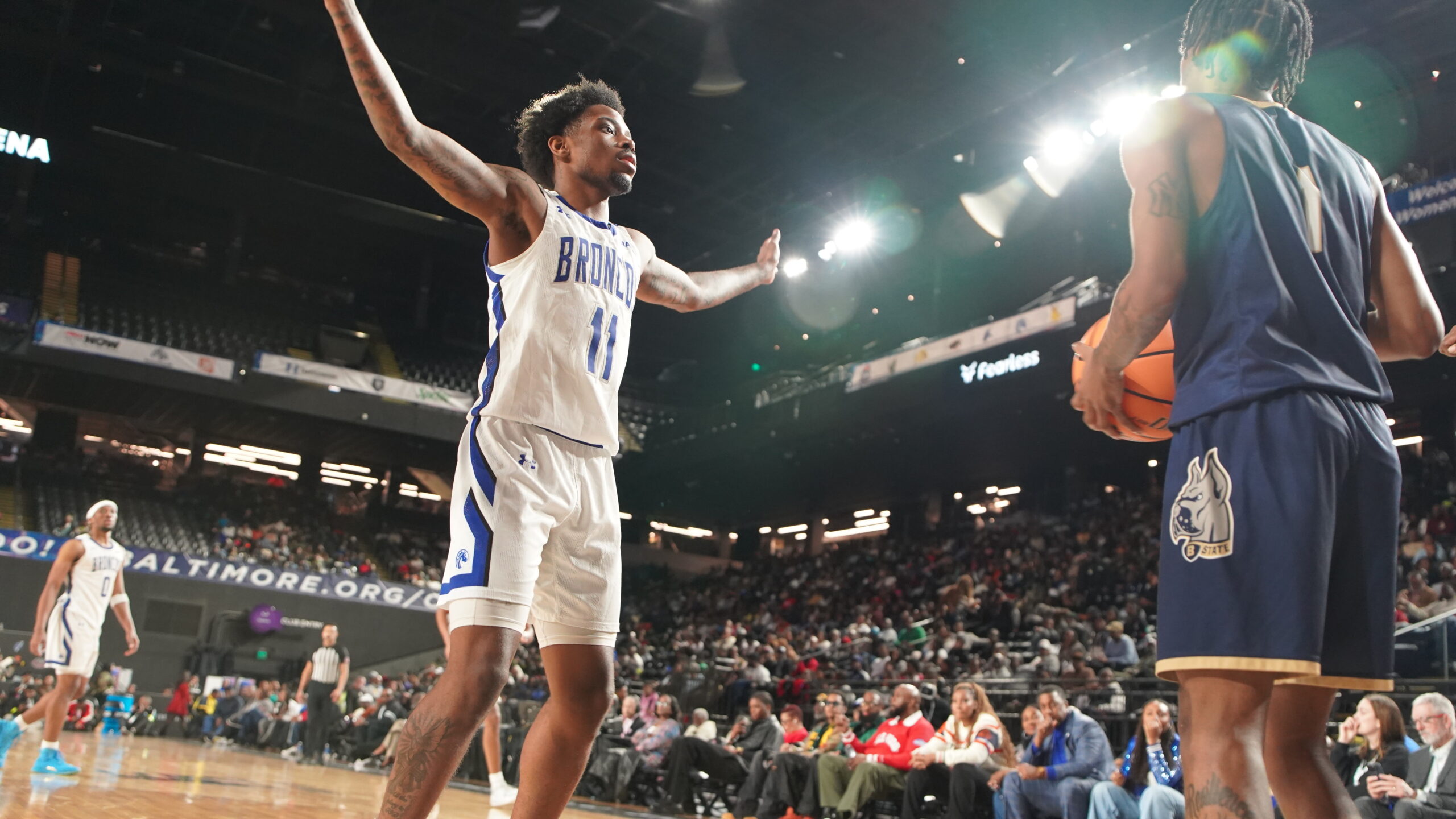
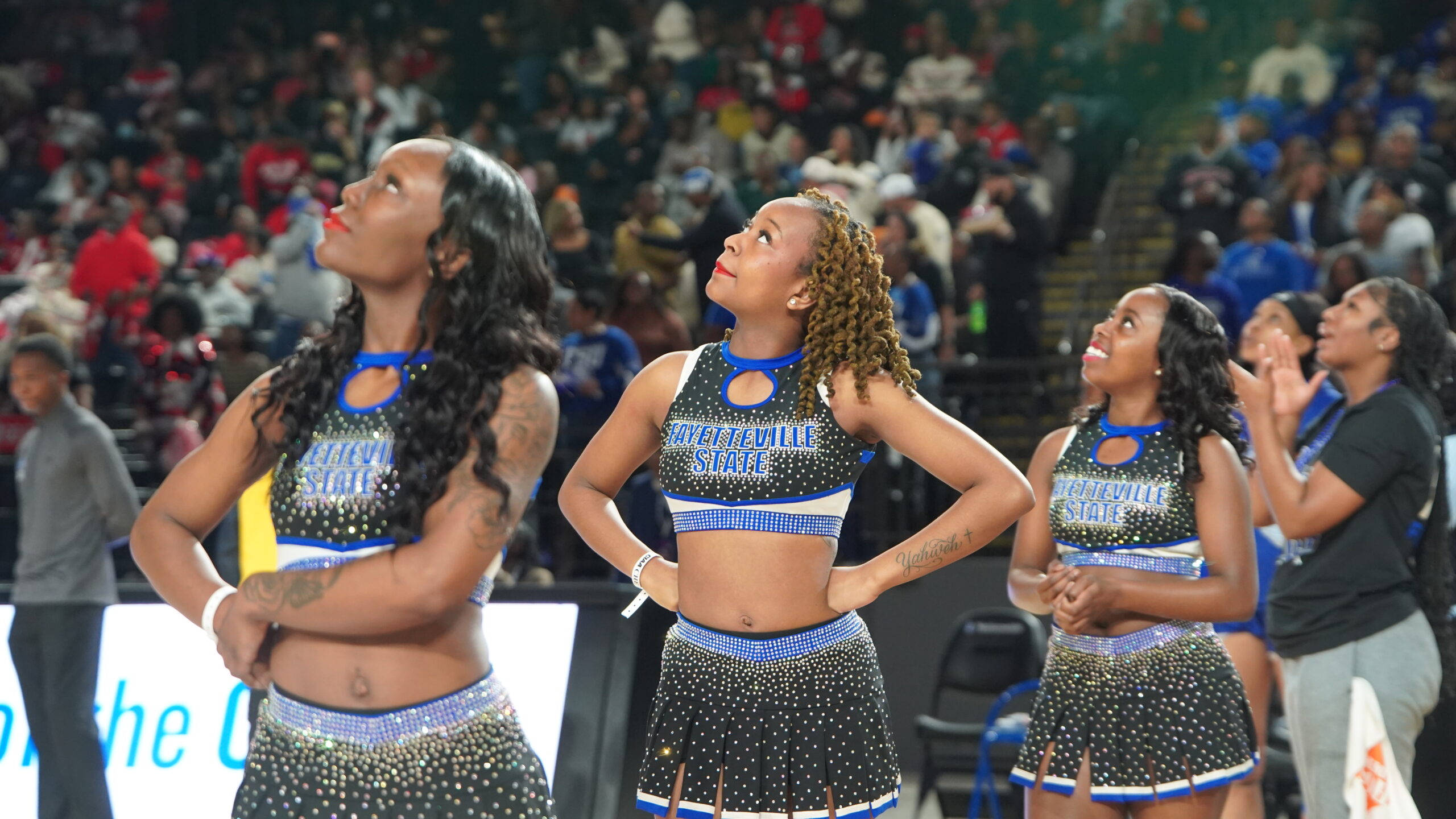
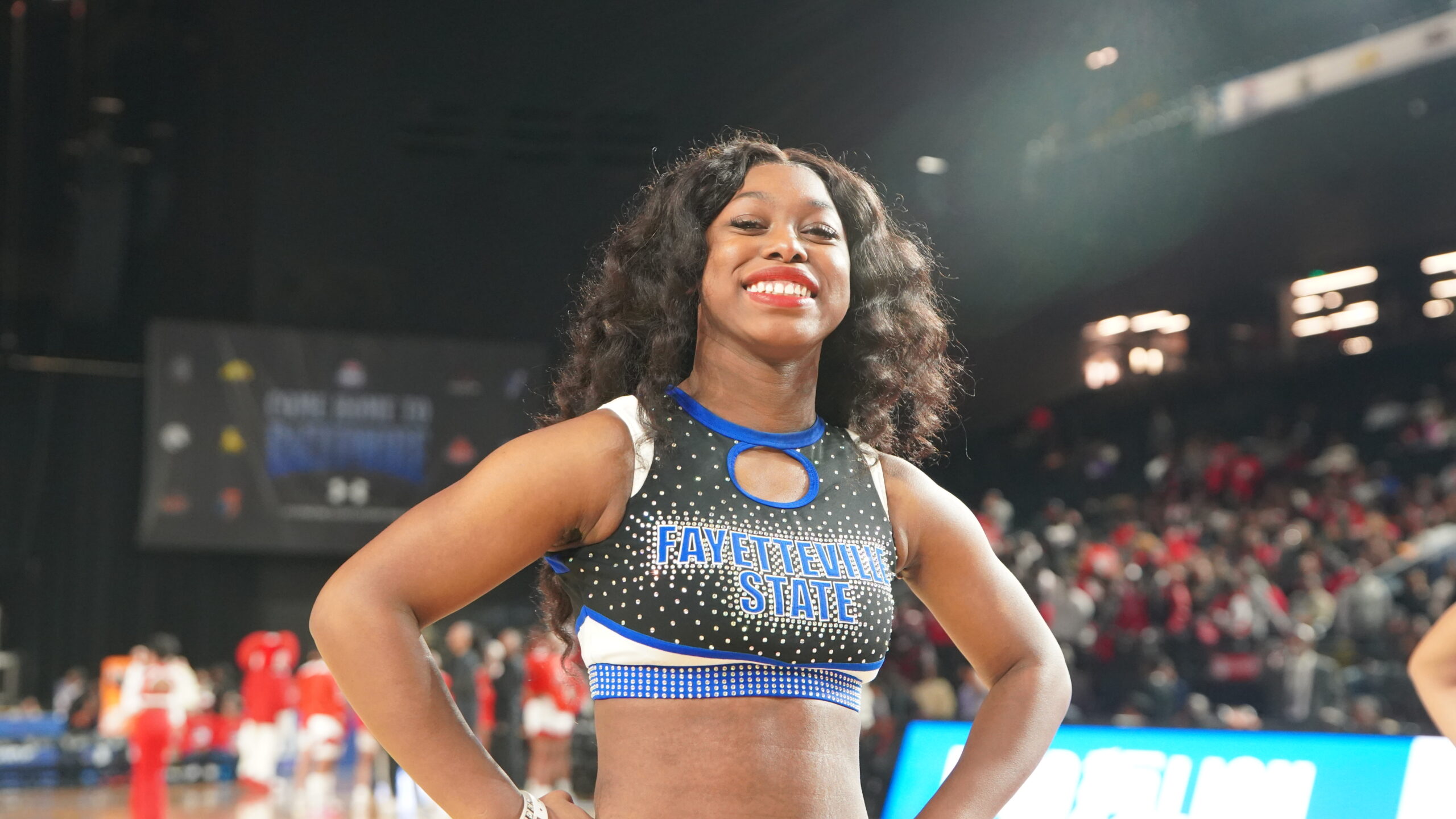
2026 CIAA Men’s Basketball All-Tournament Team
Jacob Cooper – Virginia State
Alex Atkinson – Claflin
Larry Howell – Fayetteville State
Julius Olanewaju – Lincoln (PA)
Anthony Davenport – Bluefield State
Malachi Dark – Virginia Union
Terrell Williams – Fayetteville State
Myles Pierre – Bluefield State
K.J. West – Bowie State
Jared Davis – Johnson C. Smith
Tournament MVP: Terrell Williams – Fayetteville State
Team Sportsmanship Award: Johnson C. Smith
HBCU ORIGINAL
Winston-Salem State Makes History, Captures First CIAA Women’s Basketball Championship
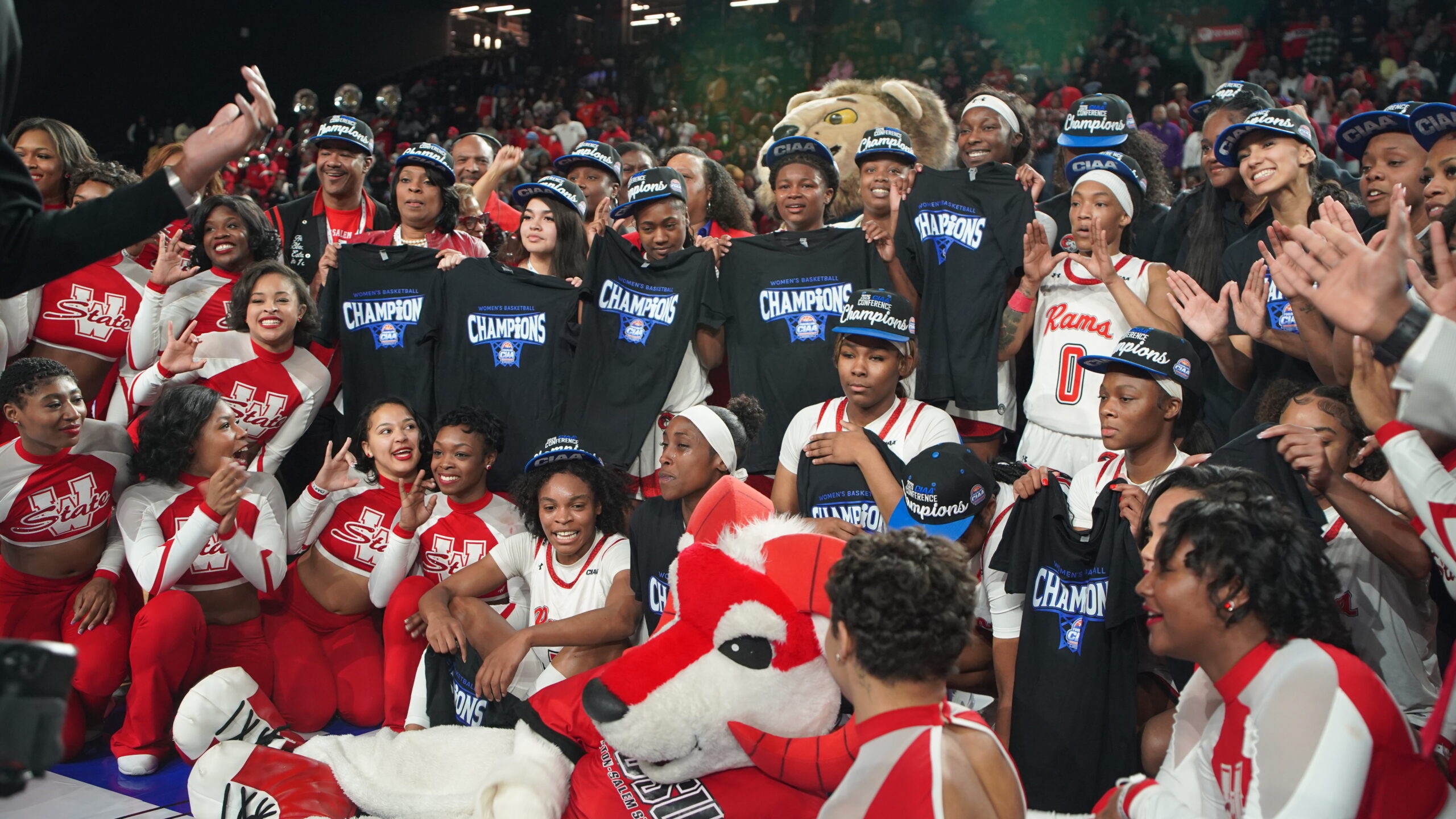
BALTIMORE, Md. — History doesn’t always arrive quietly. Sometimes it comes with defensive stops, clutch three-pointers, and a celebration decades in the making.
Inside CFG Bank Arena on Saturday afternoon, Winston-Salem State delivered its defining moment, defeating Fayetteville State 60–43 to capture the first CIAA Women’s Basketball Championship in program history. For a Rams team that spent the season proving it belonged among the elite, the title was less a surprise and more the inevitable conclusion to a dominant 26–3 campaign.
From the opening tip, Winston-Salem State played like a team determined to leave no doubt.
The Rams established control early behind defensive intensity and disciplined execution, building a first-half cushion they never relinquished. Every Fayetteville State push was met with poise, every run answered with composure — the mark of a championship team fully in command of the moment.
At the center of it all was junior guard Nevaeh Farmer, the Food Lion Player of the Game, who delivered a performance worthy of the spotlight. Farmer poured in 24 points, knocked down five three-pointers, and added five steals, impacting the game on both ends while setting the tone for Winston-Salem State’s relentless pace.
Tournament MVP Makayla Waleed added 14 points, repeatedly delivering timely baskets whenever momentum threatened to shift. Forward Maia Charles embodied the Rams’ defensive identity, contributing 10 points, seven rebounds, and six steals in a gritty all-around effort that frustrated Fayetteville State throughout the afternoon.
The Broncos (21–5) refused to fold. Junior guard Talia Trotter led the resistance with 14 points and nine rebounds, while freshman standout Samiyah Barker added 12 points, including a momentum-sparking three early in the fourth quarter that briefly energized Fayetteville State’s comeback hopes.
With just over 10 minutes remaining, Barker’s left-wing three trimmed the deficit to 47–35, igniting the Broncos’ bench and giving life to the arena. But championship teams respond — and Winston-Salem State did exactly that.
Waleed answered with a tough pull-up jumper through traffic, and moments later, Alana Biosse converted a transition basket to extend the lead back to double digits, silencing Fayetteville State’s momentum before it could fully develop.
Despite defensive stops and multiple opportunities, the Broncos struggled to convert offensively, missing key layups and battling against constant pressure in the paint. A fastbreak layup by Amina Miles cut the margin to 55–40 with just over four minutes remaining, but the Rams delivered the final blow when Waleed attacked downhill for a layup that stretched the lead to 59–42 — effectively sealing the championship.
As the final horn echoed through CFG Bank Arena, Winston-Salem State players stormed midcourt, embracing a moment generations of Rams had chased but never reached.
History had finally arrived.
For Winston-Salem State, the victory wasn’t just a win — it was a statement, a breakthrough, and the crowning achievement of a season defined by resilience, defense, and belief.
The Rams are CIAA champions for the first time ever.
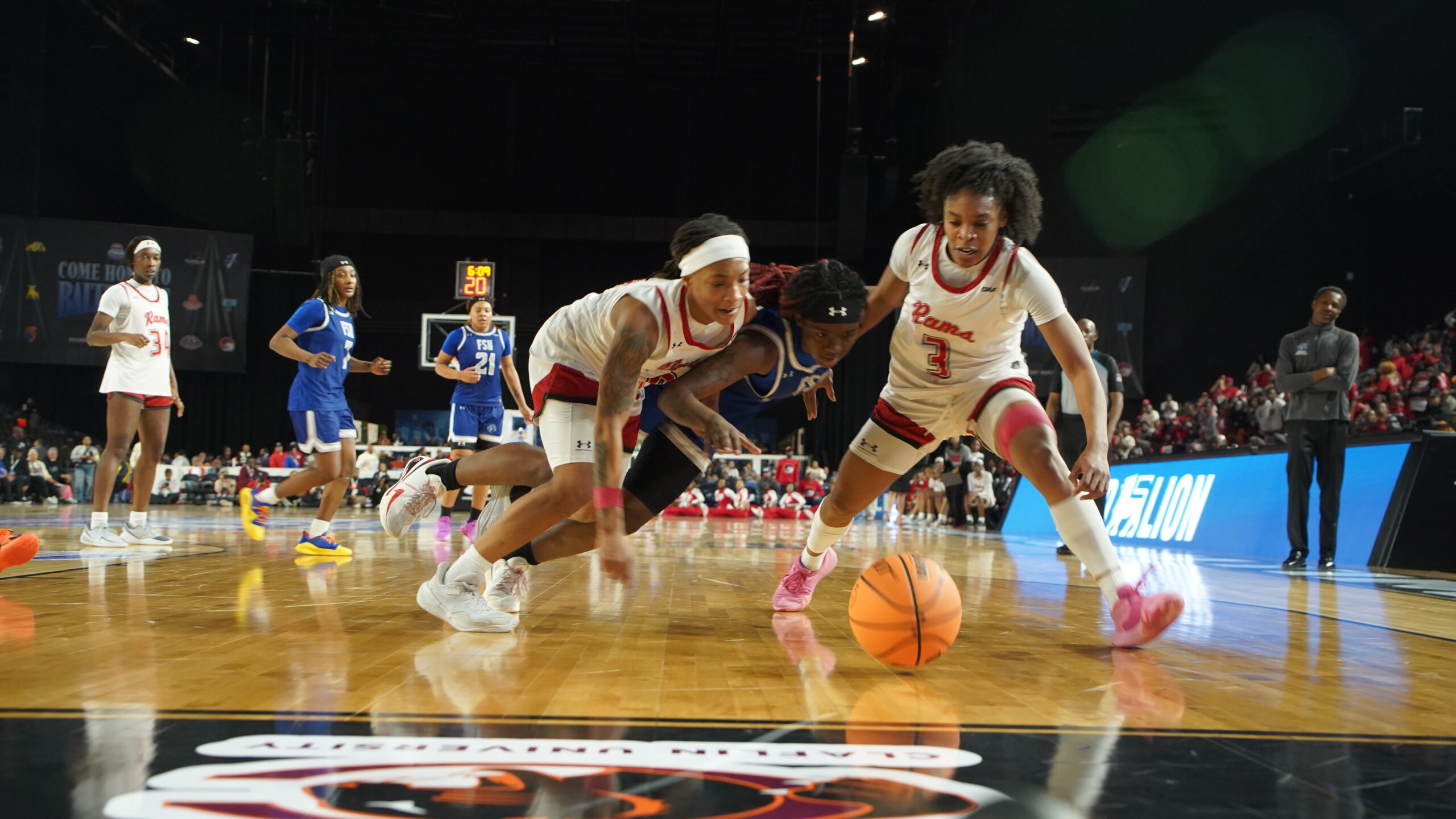
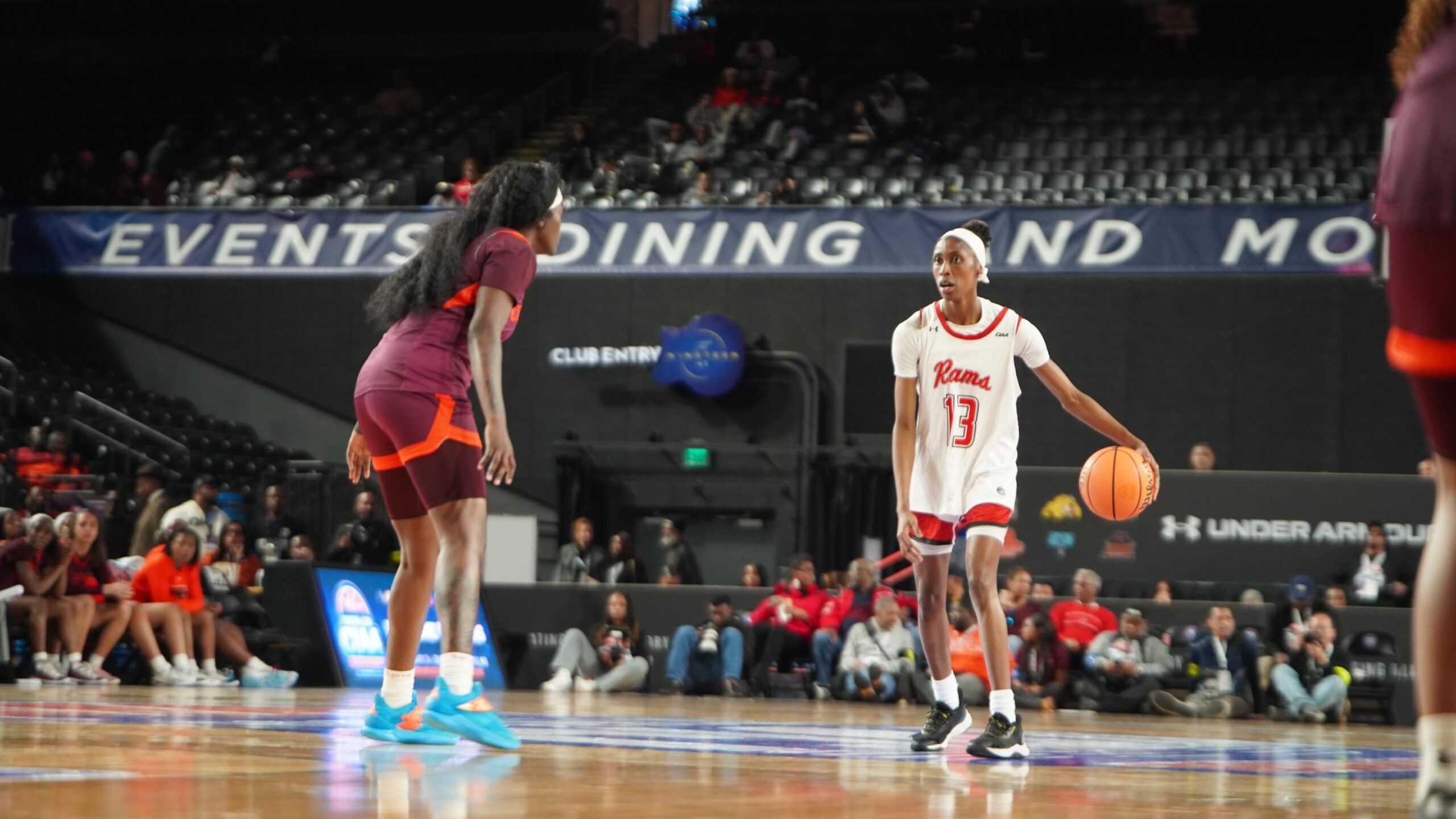
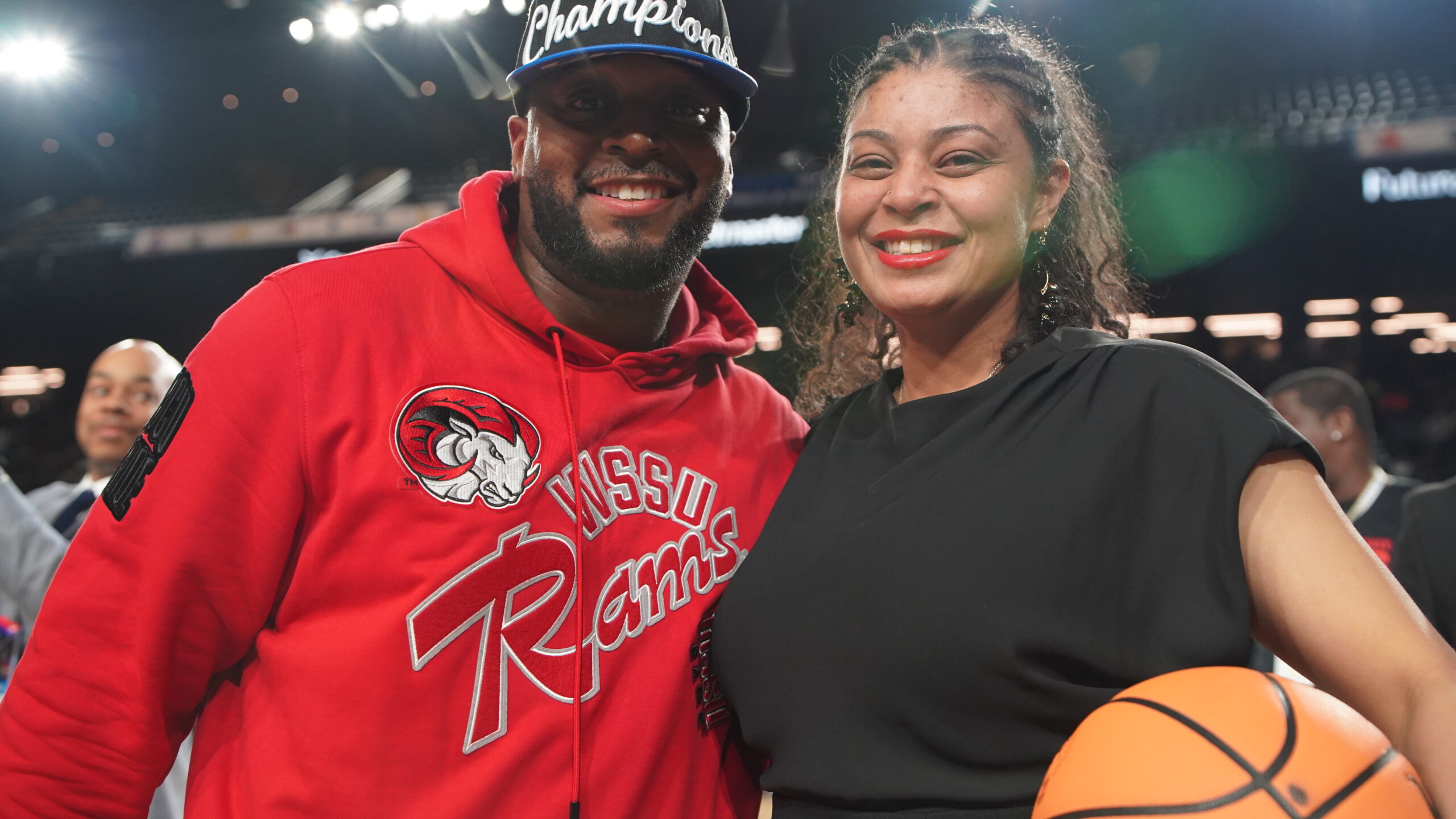
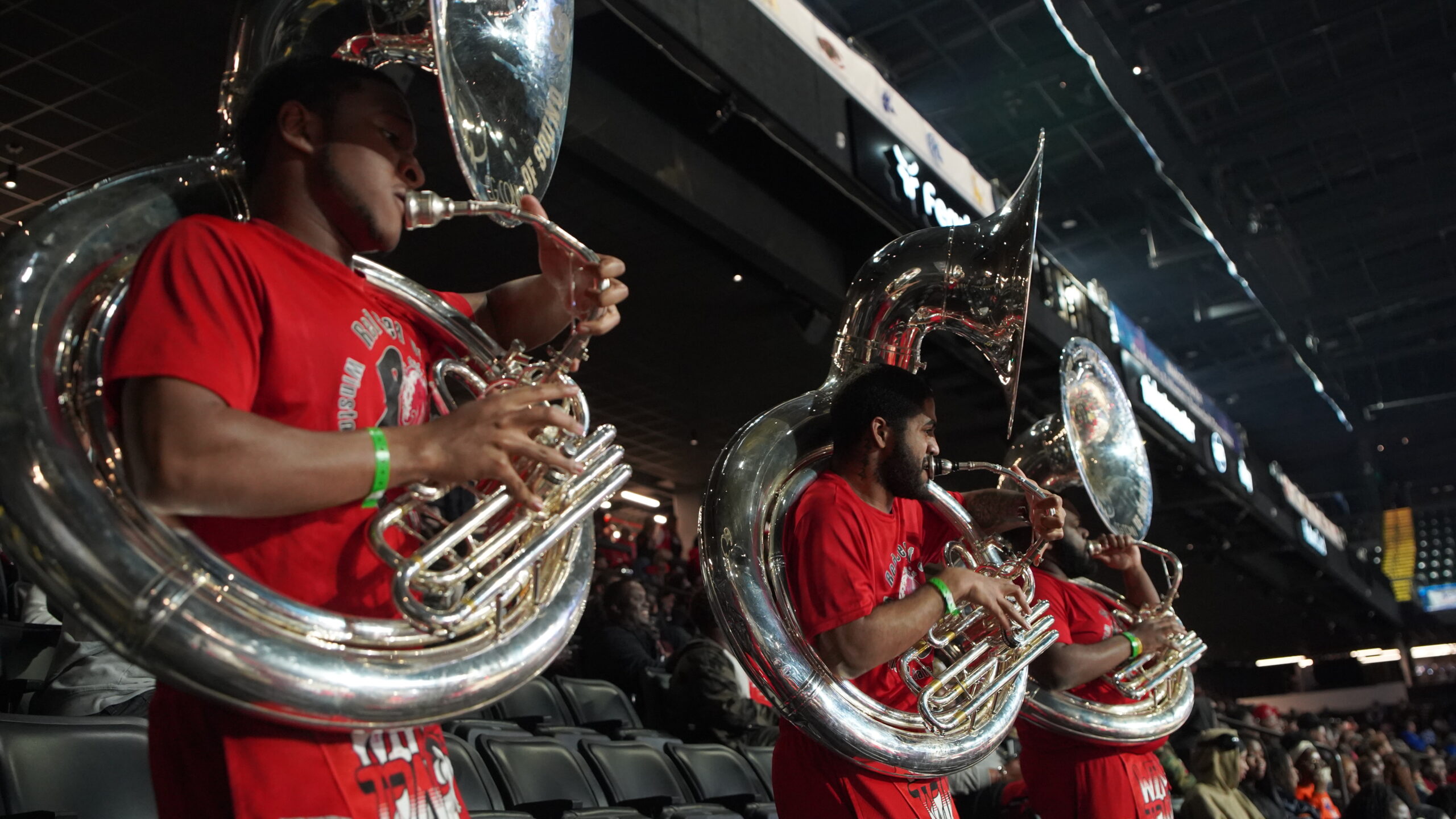
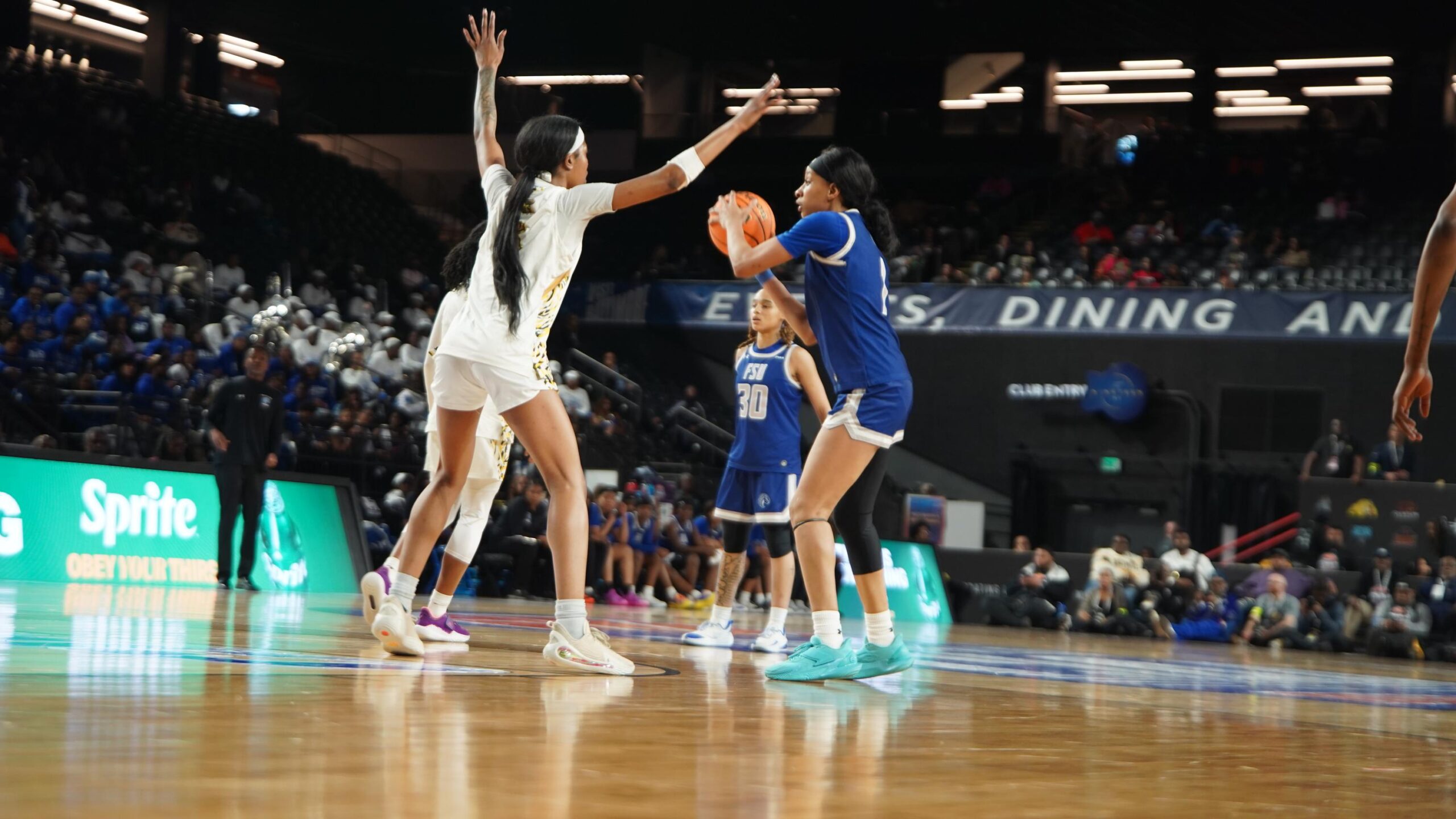
2026 CIAA Women’s Basketball All-Tournament Team
Tyra Floyd – Claflin
Nevaeh Colon – Fayetteville State
Makayla Waleed – Winston-Salem State
Mayah Garner – Bowie State
Jasmine Jenkins – Bluefield State
Bruni Martinez – Virginia Union
Jakaiya Mack – Winston-Salem State
Ashari Lewis – Claflin
Talia Trotter – Fayetteville State
Nevaeh Farmer – Winston-Salem State
Tournament MVP: Nevaeh Farmer – Winston-Salem State
Team Sportsmanship Award: Virginia State
HBCU ORIGINAL
Winston-Salem State Dominates Claflin, Advances to CIAA Women’s Championship

BALTIMORE, MD — February 27, 2026
Winston-Salem State left no doubt.
In one of the most dominant performances of the CIAA Women’s Tournament, the Rams (25–3) overwhelmed Claflin (17–9) from start to finish, rolling to a commanding 67–32 semifinal victory Thursday afternoon inside CFG Bank Arena.
Behind a complete two-way performance from Food Lion Player of the Game Nevaeh Farmer, Winston-Salem State punched its ticket to championship Saturday — and sent a clear message to the rest of the conference in the process.
Rams Take Control Early
From the opening possession, Winston-Salem State’s defensive pressure dictated everything.
Farmer opened the scoring with a driving layup, setting the tone for a relentless defensive effort that immediately rattled Claflin. The Rams forced turnovers, contested every shot, and turned defense into offense, sprinting out to a commanding 20–5 first-quarter lead.
Claflin struggled to even get looks at the basket, attempting just six shots in the opening period while committing multiple turnovers against WSSU’s aggressive pressure.
The game’s momentum never shifted back.
Dominance in the Paint
While the perimeter defense fueled the early run, Winston-Salem State controlled the interior behind Maia Charles, who delivered a powerful double-double with 12 points and 13 rebounds.
Second-chance points and transition opportunities continued to pile up as the Rams stretched the lead to 37–14 by halftime, firmly in control.
Every rebound, loose ball, and defensive stop seemed to fall WSSU’s way.
Complete Team Performance
The Rams showcased depth throughout the afternoon.
-
Breonna Roaf added seven points and three assists while pushing tempo.
-
Jakaiya Mack contributed eight points and eight rebounds with physical play inside.
-
Bench energy from Amari Baldwin and TaNiya Simms helped maintain defensive intensity and extend the lead.
Meanwhile, Claflin struggled to find answers. Ariel Lucas led the Panthers with nine points, including three three-pointers, while Ashari Lewis added seven. But Winston-Salem State’s pressure proved overwhelming.
Claflin finished just 11-of-37 from the field and committed 26 turnovers — many converted directly into Rams scoring opportunities.
Defense Defines the Statement Win
The numbers reflected total control:
-
38 points in the paint
-
20 points off turnovers
-
44 rebounds
-
Season-low 32 points allowed
Even as Claflin attempted a late fourth-quarter push, Winston-Salem State never allowed momentum to shift. Farmer capped the performance with key scoring and playmaking down the stretch, finishing with 19 points, five rebounds, four assists, and three steals.
Winston-Salem State now advances to the CIAA Women’s Basketball Championship Game, returning to the title stage as one of the conference’s most complete teams. The Rams will face Fayetteville State on Saturday at 1:00 PM in Baltimore with the championship on the line.
HBCU ORIGINAL
Fayetteville State Outlasts Bowie State, Advances to CIAA Women’s Championship

BALTIMORE, MD — February 27, 2026
Fayetteville State is headed back to championship Saturday — and they earned every second of it.
In a physical, defense-first battle inside CFG Bank Arena, the Broncos (21–4) outlasted Northern Division contender Bowie State (19–8) in a gritty 49–46 CIAA Women’s Basketball semifinal victory Friday evening, punching their ticket to the conference title game.
Leading the charge was Food Lion Player of the Game Nyah Wilkins, whose dominant two-way performance powered Fayetteville State through one of the toughest matchups of the tournament.
Defense Set the Tone Early
From the opening whistle, both teams made it clear this would not be a high-scoring affair.
Wilkins struck first, establishing her presence inside while anchoring a Broncos defense that forced early turnovers and disrupted Bowie State’s rhythm. Fayetteville State leaned into its physical identity, grinding possessions down and controlling the boards.
After one quarter, FSU held a slim 11–10 edge before extending the lead to 26–24 at halftime behind the steady play of guard Talia Trotter.
Trotter controlled tempo throughout the first half, finishing with 10 points, five assists, six rebounds, and five steals in a complete floor-leader performance. Bench contributions from Nevaeh Colon and Taleah Stephens added crucial scoring bursts that helped the Broncos maintain momentum.
Bowie State’s Third-Quarter Surge
The Bulldogs refused to fade.
Bowie State erupted in the third quarter, scoring 19 points behind strong play from Malaka Cobb and Mayah Garner. Transition buckets and timely three-point shooting flipped the game’s energy, giving Bowie State a 43–38 lead — its largest advantage of the night.
Inside the arena, momentum had fully shifted.
But Fayetteville State never panicked.
Broncos Close Like Champions
The fourth quarter belonged to Fayetteville State’s composure.
Colon sparked the comeback early with a deep three-pointer to cut the deficit to two. Moments later, Alivia Evans knocked down a clutch triple from the wing, swinging momentum back toward the Broncos.
Then came the play that changed everything.
With just under three minutes remaining, Trotter jumped a passing lane at midcourt and raced in for a fast-break layup, giving FSU its first lead since early in the third quarter.
Wilkins followed with a powerful finish through contact to extend the advantage and ignite the Broncos bench.
From there, Fayetteville State’s defense sealed the game.
The Broncos held Bowie State without a field goal over the final four minutes, contesting every possession and controlling the glass down the stretch. Trotter added a key free throw with eight seconds remaining to push the lead to three.
Bowie State’s final attempt — a deep buzzer-beating three — bounced off the rim as Fayetteville State celebrated its return to the CIAA Championship.
By the Numbers
-
Nyah Wilkins: 13 points, 10 rebounds, 4 steals, 2 assists
-
Talia Trotter: 10 points, 5 assists, 6 rebounds, 5 steals
-
Nevaeh Colon: Key fourth-quarter three
-
Alivia Evans: Go-ahead three-pointer
Fayetteville State now advances to face Winston-Salem State in Saturday’s CIAA Women’s Basketball Championship Game at 1:00 PM — a rivalry matchup with added stakes after the teams split their regular-season meetings.
Baltimore now sets the stage for a final chapter with a championship on the line.
-
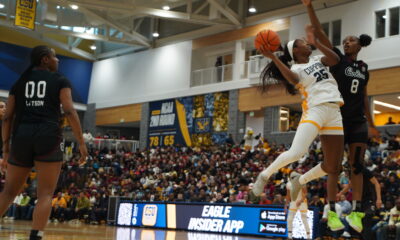
 Sports1 month ago
Sports1 month agoCoppin State Hosts No. 2 South Carolina in Baltimore
-
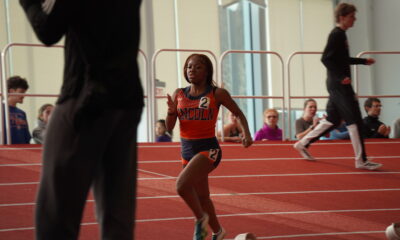
 HBCU ORIGINAL4 weeks ago
HBCU ORIGINAL4 weeks ago🦁🐺 HBCU Original — Lincoln & Cheyney Deliver Big Performances at Widener Schuylkill Showdown
-
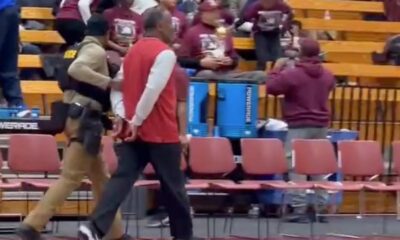
 HBCU ORIGINAL4 weeks ago
HBCU ORIGINAL4 weeks agoTuskegee Coach Benjy Taylor Escorted Off Court in Handcuffs After Postgame Incident
-
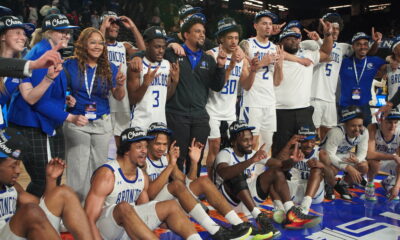
 HBCU ORIGINAL3 days ago
HBCU ORIGINAL3 days agoFayetteville State Rallies Late to Capture 2026 CIAA Men’s Basketball Championship
-
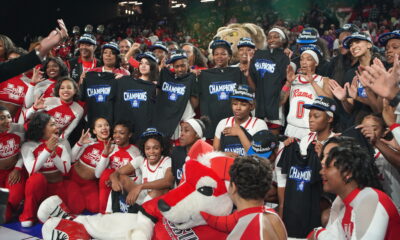
 HBCU ORIGINAL3 days ago
HBCU ORIGINAL3 days agoWinston-Salem State Makes History, Captures First CIAA Women’s Basketball Championship
-
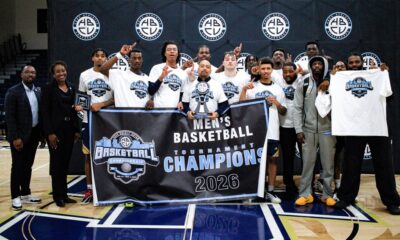
 HBCU ORIGINAL4 hours ago
HBCU ORIGINAL4 hours agoSUNO Wins First Conference Title Since 2012
-
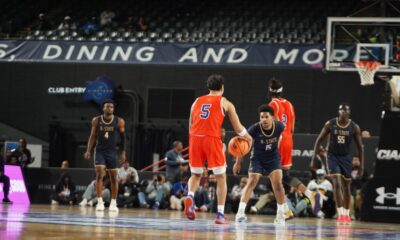
 HBCU ORIGINAL4 days ago
HBCU ORIGINAL4 days agoBluefield State Survives Virginia State Rally, Advances to CIAA Championship Game
-
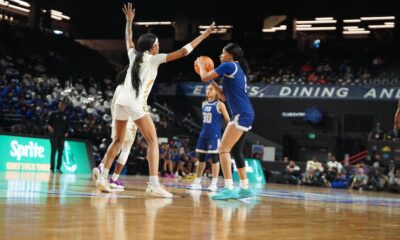
 HBCU ORIGINAL4 days ago
HBCU ORIGINAL4 days agoFayetteville State Outlasts Bowie State, Advances to CIAA Women’s Championship
